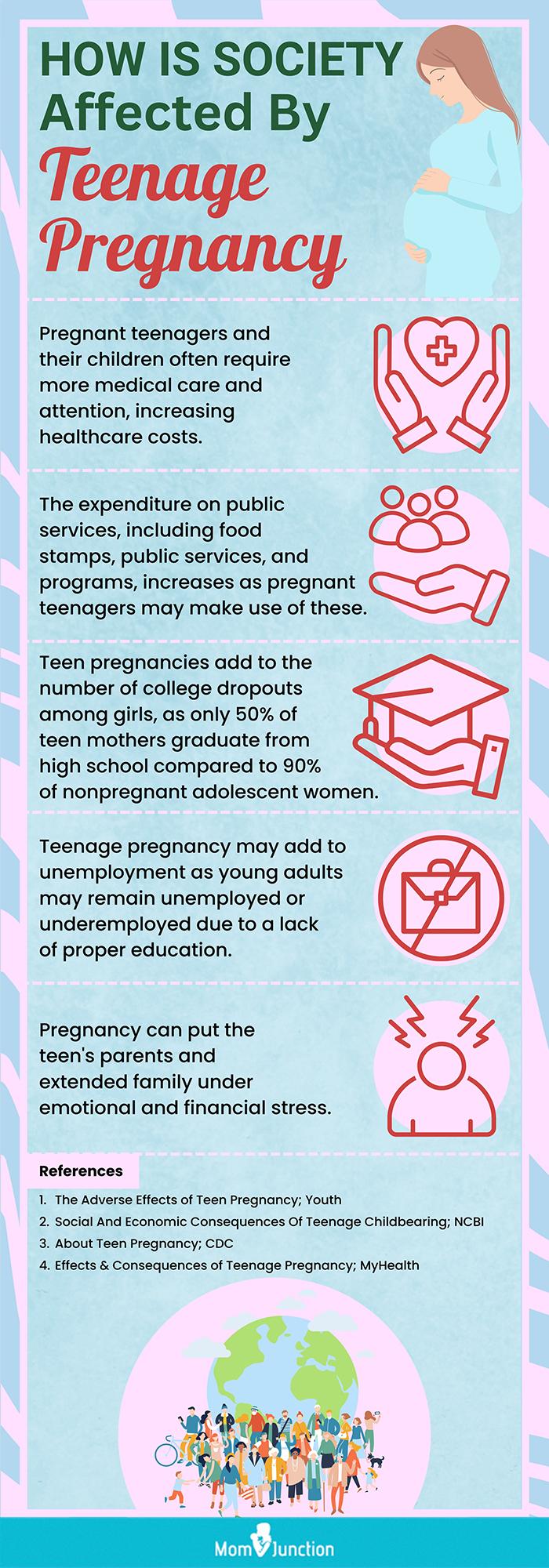
Social Causes of Teen Pregnancy: A Comprehensive Analysis
Introduction
Teen pregnancy remains a prevalent issue in the United States, with significant implications for the health and well-being of young mothers and their children. While biological factors contribute to the likelihood of conception, social determinants play a crucial role in shaping the circumstances that lead to teen pregnancies. This article aims to provide a comprehensive analysis of the social causes of teen pregnancy, exploring the multifaceted factors that contribute to this complex issue.
Poverty and Economic Disadvantage
Poverty is a significant risk factor for teen pregnancy. Young women living in low-income households often face limited access to education, healthcare, and other resources that can empower them to make informed decisions about their reproductive health. Financial constraints may also lead to unstable housing, food insecurity, and other stressors that can compromise their ability to focus on their education and avoid risky behaviors.
Lack of Education and Limited Opportunities
Teen pregnancy is closely linked to educational attainment. Young women who drop out of school are more likely to become pregnant than those who complete their education. Limited educational opportunities, such as inadequate sex education and lack of access to contraception, can contribute to unplanned pregnancies. Furthermore, girls who lack positive role models and mentors may be more susceptible to peer pressure and risky sexual behaviors.
Family Structure and Relationships
Family dynamics and relationships play a significant role in shaping adolescent behavior. Young women from single-parent households or those with strained family relationships are at increased risk for teen pregnancy. Lack of parental supervision, support, and guidance can lead to feelings of isolation and vulnerability, making them more likely to engage in risky behaviors.
Peer Pressure and Social Norms
Peer pressure and social norms can exert a powerful influence on adolescent behavior. In communities where teen pregnancy is normalized, young women may feel pressured to conform to expectations and engage in sexual activity prematurely. Social media and other forms of media can also perpetuate unrealistic and harmful messages about sexuality and relationships, further contributing to the risk of teen pregnancy.
Cultural and Religious Beliefs
Cultural and religious beliefs can influence attitudes towards premarital sex and contraception. In some cultures, teen pregnancy may be viewed as acceptable or even desirable, leading to lower rates of contraceptive use and higher rates of unplanned pregnancies. Religious beliefs may also restrict access to reproductive health services, further exacerbating the risk of teen pregnancy.
Lack of Access to Healthcare and Contraception
Access to comprehensive reproductive healthcare, including contraception, is essential for preventing teen pregnancy. However, many young women face barriers to accessing these services due to lack of insurance, transportation, or parental consent. Comprehensive sex education programs that provide accurate information about contraception and safe sexual practices can empower young women to make informed decisions about their reproductive health.
Consequences of Teen Pregnancy
Teen pregnancy has significant consequences for both young mothers and their children. Young mothers are more likely to experience health complications during pregnancy and childbirth, and their children are at increased risk for low birth weight, developmental delays, and other health problems. Teen mothers also face challenges in completing their education, securing stable employment, and providing a stable home for their families.
Interventions and Prevention Strategies
Addressing the social causes of teen pregnancy requires a comprehensive approach that involves multiple stakeholders, including parents, educators, healthcare providers, and policymakers. Effective interventions include:
- Comprehensive Sex Education: Providing young people with accurate and age-appropriate information about sexuality, contraception, and healthy relationships can empower them to make informed decisions about their reproductive health.
- Access to Healthcare and Contraception: Ensuring access to affordable and confidential reproductive healthcare services, including contraception, is crucial for preventing teen pregnancy.
- Economic Empowerment: Providing young women with opportunities for education, job training, and financial assistance can help reduce the risk of poverty and improve their overall well-being.
- Strong Family Relationships: Supporting healthy family relationships and providing young women with positive role models and mentors can foster a sense of belonging and reduce the risk of risky behaviors.
- Community-Based Programs: Community-based programs that provide support, education, and resources to young women and their families can help address the social determinants of teen pregnancy and promote healthy outcomes.
Conclusion
Teen pregnancy is a complex issue with deep-rooted social causes. Poverty, lack of education, family structure, peer pressure, cultural beliefs, and limited access to healthcare all contribute to the likelihood of unplanned pregnancies among young women. Addressing these social determinants requires a multifaceted approach that involves empowering young people with knowledge and resources, strengthening families and communities, and ensuring access to comprehensive reproductive healthcare. By working together, we can create a society where all young women have the opportunity to reach their full potential and make informed decisions about their reproductive health.